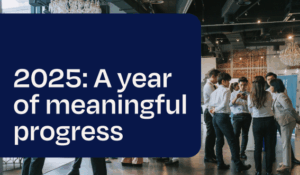In this section you will find information about key definitions and the state of play for age diversity in Australian workplaces, learn why your organisation should take action to promote age diversity and inclusion in the workplace, and explore leading practices for creating age inclusive workplaces.
Overview
Explore definitions, key issues and the state of play.
The case for action
Find out why your organisation should take action.
Leading practice
Learn how to take a leading practice approach.
DCA research
Check out DCA's research on this topic.
Upcoming events
Register for an upcoming event on this topic.
Recordings of past events
Access recordings of past events on this topic.
Latest Articles - Age

DCA Insights: 26 January
As 26 January approaches, workplaces are recognising that this date evokes different emotions for employees. For some, it is Australia Day, yet for many Aboriginal and/or Torres Strait Islander people it is referred to as Survival Day and/or Invasion Day.

How DCA will support inclusive workplaces in 2026
A new year brings new priorities. Here’s how DCA will support evidence-based inclusion and meaningful workplace change in 2026.

DCA’s year-end office closure
The DCA office will be closed from Monday 22 December 2025 to Friday 2 January 2026 For any enquiries, please email admin@dca.org.au and we will respond to you when the

A statement from DCA on the Bondi attack
Diversity Council Australia is profoundly saddened by the tragic violence that unfolded at Bondi Beach during a Hanukkah celebration.

International Migrants Day: Championing diversity as a strength
To mark International Migrants Day, DCA is highlighting the enormous positive impact migrants have on Australia’s economy, communities, and workplaces.

DCA’s 2025 year in review and what’s ahead for 2026
As 2025 draws to a close, we’re taking a moment to reflect on a year of meaningful progress and share with you some of our plans for 2026, highlighting opportunities and resources that will deliver even more value to DCA members.
